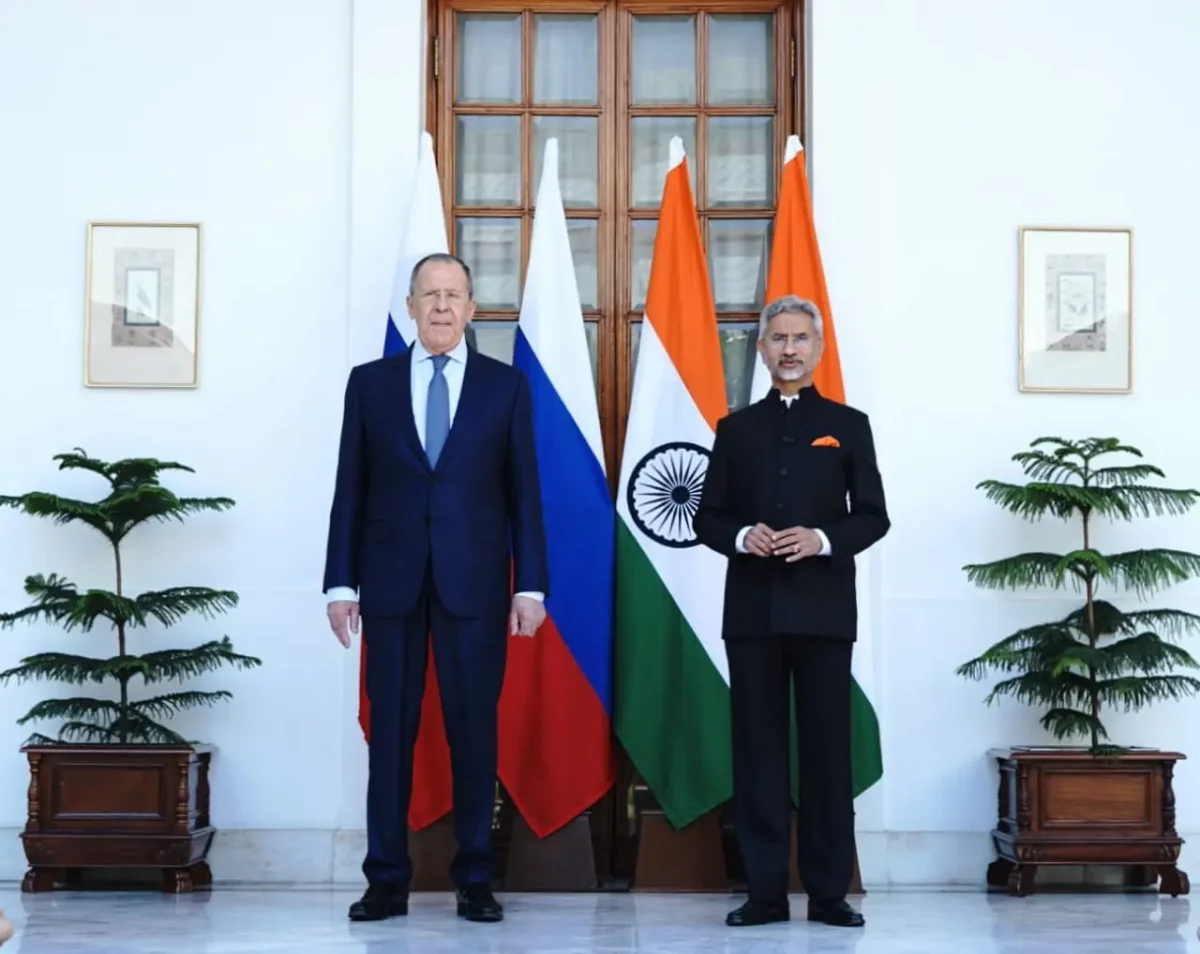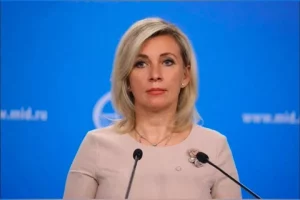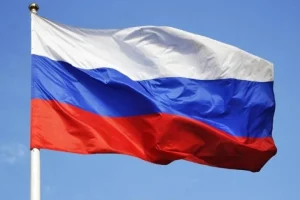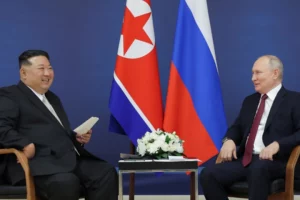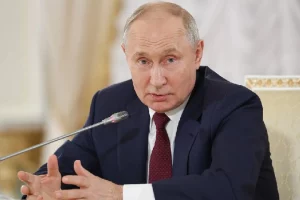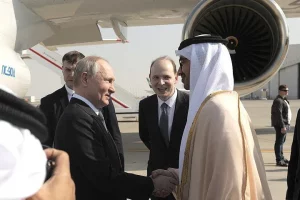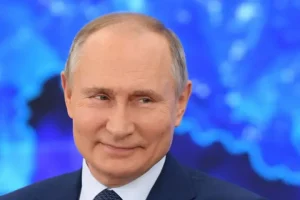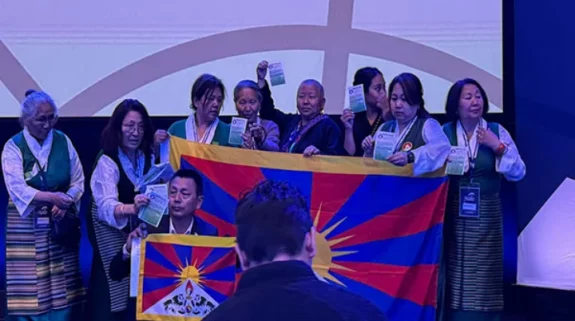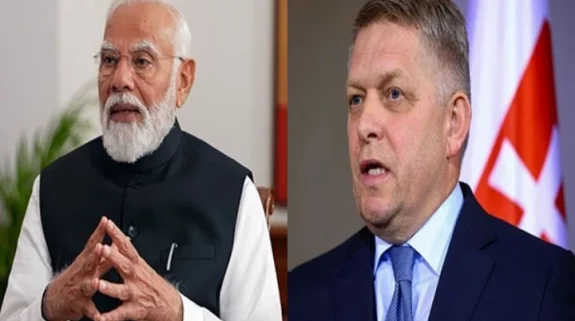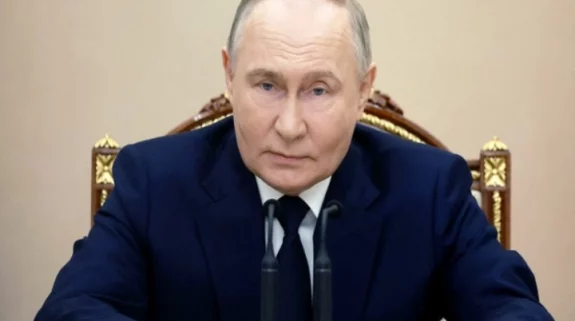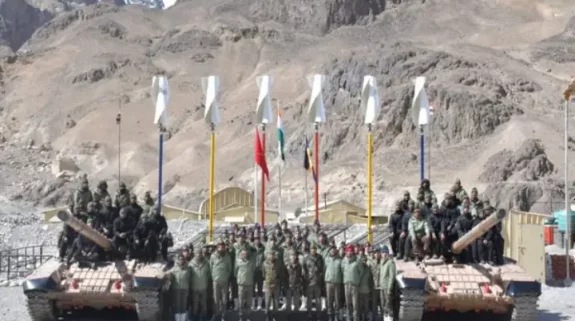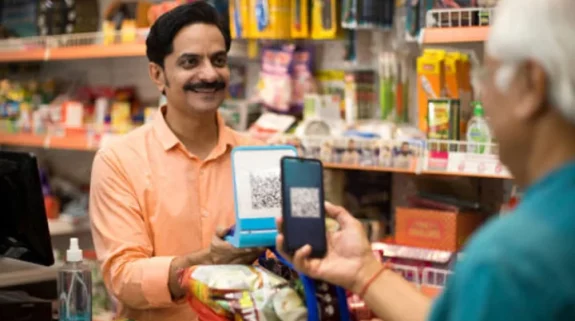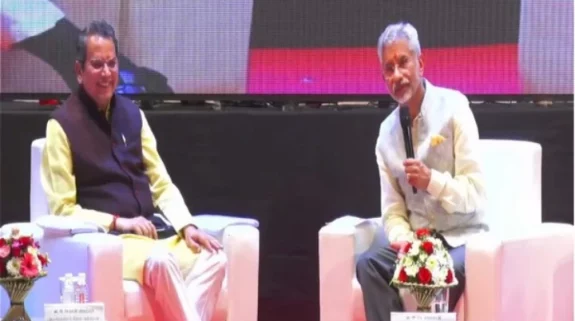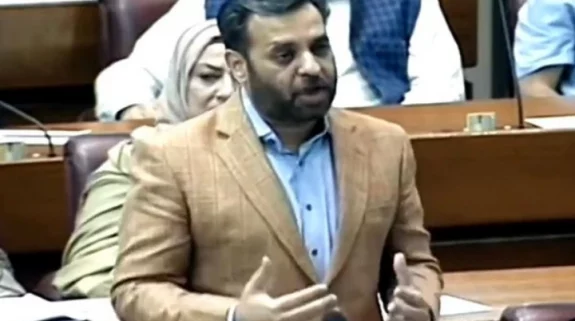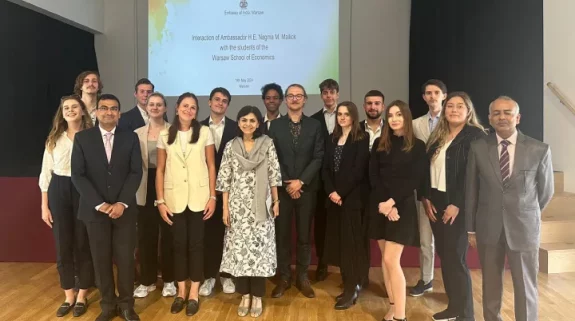The recent visit by foreign minister of the Russian Federation, Sergei Lavrov, stands out for a number of reasons. Foremost of course is Russia's ongoing "special military operation" in Ukraine. Operations have entered the second month and a wide range of harsh sanctions have been slapped by the Western world led by the USA on Russia, which will significantly cripple the Russian economy.
The second is India's tacit but stout support of Russia. India has claimed to be "neutral", abstaining from every UN vote against Russian action in Ukraine, but that is well understood to be a fig leaf with good reason. Though India has called for a return to the negotiating table by both sides and sent humanitarian aid to Ukraine, India's stand is putting it under considerable pressure from the USA and other western entities, both within and outside the Quad—the four-member Indo-Pacific bloc.
Welcoming the Foreign Minister of the Russian Federation Sergey Lavrov as he arrives in New Delhi for an official visit. pic.twitter.com/eHHCRgF30y
— Arindam Bagchi (@MEAIndia) March 31, 2022
Third, it comes in the course of a spate of visits to Delhi by foreign ministers and delegations of different countries, including those of the UK, the USA, and China but it was only Lavrov who could meet Prime Minister Narendra Modi, in which the latter promised to “contribute” in any way to end the conflict in Ukraine.
In Delhi, a smiling Lavrov said: "We will be ready to supply to India any goods which it wants to buy from us. We are ready to discuss. Russia and India have very good relations…", in reference to oil purchases that India has been making from Russia at discounted rates following Western sanctions.
Further, in spite of growing US and European Union pressure on India, Finance Minister Nirmala Sitharaman announced that India would continue to purchase oil from Russia.
While this time around, and predictably, Lavrov who was all praise for India's correct and independent stand on Ukraine, did not fly to Islamabad from Delhi, he did come here after visiting China for a regional ministerial on Afghanistan, and a week after Chinese Foreign Minister Wang Yi visited Delhi. This raises many questions. Are these initial initiatives for the RIC? Will the Russia-India-China trilateral cooperation take off? Russia, whose once Prime Minister Evgeny Primakov, had first mooted the idea, would certainly want to.
In China, both sides noted the "counterproductive nature of the illegal unilateral sanctions" imposed on Russia by the US and its NATO allies.
Since 2014, after Crimea's accession to Russia, Western sanctions have pushed Russia closer to China, especially with the “energy lifeline” though China has not acknowledged the accession. The current sanctions, far greater in range and scope, are further pushing Russia closer to not only China, but also India, which has resolutely withstood Western pressure.
Russia has, at least, since 2014 been interested in a breakthrough on the border impasse between India and China. Russian President Vladimir Putin's strategy of “Greater Eurasian Partnership” hinges on relations with India and China. And this requires friendly relations between both neighbours. Despite Russia's Eurocentrism, its destiny has always been tied to Asia. In recent confrontations between India and China, from Doklam to the Galwan Valley clashes, Russia has played behind the scenes to de-escalate tensions between the two Himalayan neighbours.
However, during Wang Yi's recent visit to Delhi earlier this week, he was firmly told that China's annexation of Indian territory on eastern Ladakh could not be decoupled from other forms of engagement between the two countries. National Security Advisor Ajit Doval conveyed that the restoration of status quo ante along the Line of Actual Control (LAC) was a precondition for the normalisation of bilateral relations.
While China has been playing it safe so far, it is also closely following the outcome of the wide-ranging economic sanctions on Russia, with repercussions reverberating far and wide across global markets—recovering now after being ravaged by the Coronavirus. It is hosting this year's Brazil, Russia, India, China, and South Africa (BRICS) summit, when member states South Africa and Brazil have also refused to be in the strident anti-Russian camp of NATO. Attention will be focussed on whether Modi attends the summit.
Strangely, the current tragic Ukraine crisis offers an opportunity for China, with Russian facilitation, to achieve a breakthrough in relations with India. India's condition is minimalistic—restore the status quo ante along the LAC. China will have much to benefit by normalising relations with India. It is also a prerequisite for both RIC and Putin's Greater European Partnership (GEP). Can Russia facilitate it?
Read More:
Will Ukraine’s Zelensky face the same fate as Ashraf Ghani of Afghanistan?






